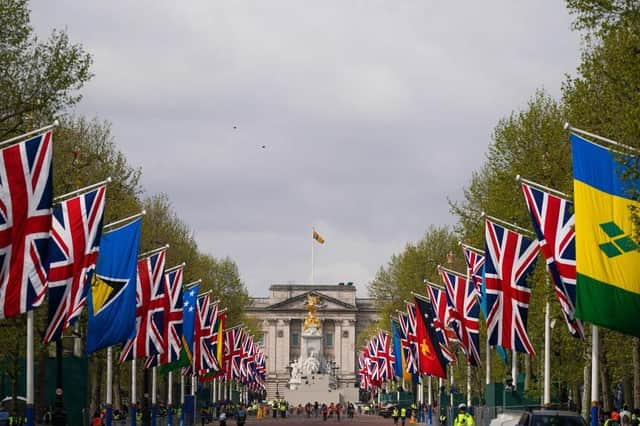Cost of the Coronation: How much is Charles III's coronation costing, who pays for it, and what else the money could have bought?


The price of the ceremony and surrounding events is under scrutiny as never before, due to the cost of living crisis and an estimated one-in-five of the monarch’s subjects currently living in poverty.
The concerns of the British public have not escaped the attention of the new King, who is understood to have requested a "shorter, smaller and less expensive" coronation ceremony.
Advertisement
Hide AdAdvertisement
Hide AdBut it will still be one of the most expensive events ever held in Britain – so just how costly it is going to be?
Here’s everything you need to know, incliding what the money could have bought.
What ties King Charles III to Scotland? 7 of the monarch's links to Scotland including his children's book
How much will the coronation cost?
The cost of the coronation will not be released until after the event but the group that is planning the huge event – called the Operation Golden Orb committee, has reportedly estimated a cost of around £100 million.
This is despite the number of guests at Westminster Abbey being capped at 2,000 – just 100 more than Kate Middleton and Prince William's wedding and less than a quarter of the 8,251 who attended Queen Elizabeth II’s coronation.
Those defending the cost point out that it will also generate a large amount of money – including for worldwide television rights and a boost to tourism.
Downing Street and the Department for Digital, Culture, Media and Sport have repeatedly declined to comment on the cost of the coronation.
Who pays for the coronation?
A Buckingham Palace spokesman said: “Given the coronation is a national state occasion, funding sources will include the sovereign grant and the UK government.”
Advertisement
Hide AdAdvertisement
Hide AdUltimately the bill will be paid by the UK taxpayer, with many questioning whether this should be the case.
A YouGov poll found that 51 per cent of Brits do not think it should fall to the Government to pay for the coronation, compared to a third who were in favour.
How much did previous coronations cost?
Queen Elizabeth II’'s coronation in 1953 cost around £1.5 million, equating to around £50 million – roughly half what her son’s coronation is expected to cost.
It seems that coronations becoming more expensive is nothing new though, King Charles’ grandfather George VI, was crowned at a cost of £454,000 in 1937 – around £24.8 million today. That in turn was more than the £185,000 spent on George V’s 1911 coronation, which would be equivilent to around £17.4 million today.
Meanwhile, Queen Victoria’s lavish coronation in 1838 were a relative bargain even though it included three state balls, two court receptions, a drawing room and state concert, and a public procession to the Abbey. All that for just £69,000 – £6.2 million in today’s money.
What could the money have been spent on instead?
If taxpayers were not being asked to foot the bill for ther coronation, this is what the £100 million could have been spent on instead, according to the experts at Loopex Digital:
- The UK's average yearly energy bill for a medium-sized household is £2,502.23. If the £100 million were used for energy bills, it could support around 39,962 households, helping many low-income families in a country with a 20 per cent poverty rate.
- In the past year, UK strikes increased as healthcare workers and teachers sought higher pay due to rising inflation. A £100 million budget could provide a 10 per cent wage increase or one-time bonus for about 29,410 nurses and 31,000 teachers, based on their average salaries.
Advertisement
Hide AdAdvertisement
Hide Ad- The £100 million could have been spent on projects like fixing or growing transportation systems. Fixing local roads may cost £50,000 to £200,000 per mile, letting the government fix up to 2,000 miles. Improving public transport might cost £10 million to £100 million per mile. Spending money on these projects can create jobs and help the economy grow over time.
- Another way to use the budget would have been to build affordable homes. Building a new home might cost £100,000 to £150,000, based on the project's details. With £100 million, the government could build about 6,000 to 10,000 new homes. The price can change depending on factors like the location and the housing type. This could help with the housing shortage and create jobs in building.
Comments
Want to join the conversation? Please or to comment on this article.